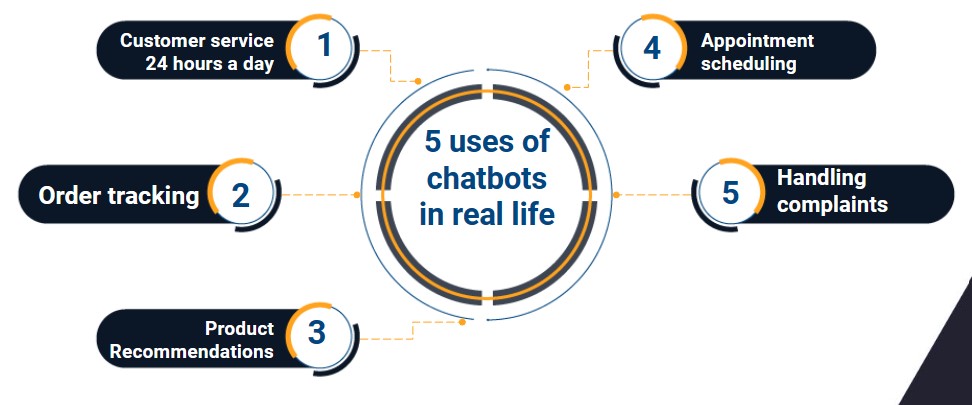
Case Studies on How Websites Are Transforming the Travel Industry
September 14, 2023
Table of contents
Quick Access

Is there a business that doesn't have a website? We have our doubts, but anything is possible. In today's world, not having a presence on the internet can be seen as if the firm or individual does not exist; this is especially true in the tourism industry.
Before we get into the specifics, let's define what a website is: a collection of web pages and linked digital content that can be accessed via the Internet. These web pages are often structured and organized to provide users with information, services, or resources. Web servers host the websites, which can be viewed by web browsers such as Chrome, Firefox, Safari, or Edge.
The essential elements of a functional website
- Websites are made up of individual web pages, each of which might include text, photos, videos, links, and other multimedia elements. These pages are linked together via hyperlinks, allowing users to move between them.
- Websites are frequently associated with a domain name, which is a human-readable address that is used to locate the site on the Internet. "www.example.com" is an example of a domain name.
- Web hosting is the storage of websites on web servers, which are powerful computers designed to deliver web material to consumers as they want it. Web hosting firms provide the infrastructure and services required for website hosting.
- HTML/CSS: HTML (Hypertext Markup Language) is commonly used to structure material on web pages, and CSS (Cascading Style Sheets) is used for layout and formatting. These technologies govern how material appears in a web browser.
- CMS (Content Management System): Some websites are built on CMS platforms like WordPress, Joomla, or Drupal, which make the process of creating and maintaining web content easier.
- Multimedia: To improve the user experience, websites frequently integrate multimedia elements such as photographs, videos, audio, and interactive features.
- Many websites include interactive components such as forms, buttons, and scripts to encourage user interaction, data collection, and interactivity.
- Websites frequently contain navigation menus or links that allow users to travel between different parts or pages on the site.
- Websites provide a variety of functions, such as informational (e.g., news websites), e-commerce (online stores), social networking (e.g., Facebook), educational (e-learning platforms), and so on.
- Web accessibility principles and standards are used by web developers to make websites accessible to all users, including those with disabilities.
Case studies and practices that have transformed travel websites
Websites have had a significant impact on the travel business, changing the way consumers plan, book, and enjoy their vacations. Several best practices and successful case studies have fueled this transition.
We will examine the most influential techniques and do case studies on each one:
Online Reservations & Reservations
Expedia.com Case Study: Expedia transformed the travel business by providing a one-stop platform for booking flights, hotels, car rentals, and activities online. Users may compare pricing, read reviews, and make appointments all in one convenient location.
Personalization and suggestions
Booking.com Case Study: Booking.com suggests accommodation based on individualized recommendations based on user behavior and interests, making the booking process more tailored to individual needs.
Content created by users
TripAdvisor Case Study: TripAdvisor allows travelers to publish reviews and ratings of hotels, restaurants, and attractions, providing consumers with peer-based information to help them make informed selections.

Optimization for mobile devices
Airbnb Case Study: Airbnb provides a mobile app that allows users to search for and book unique accommodations while on the go, highlighting the need of mobile optimization for travel websites.
Visual content and virtual tours
Airbnb Experiences Case Study: Through live streaming and interactive visual content, Airbnb delivers virtual experiences that allow customers to explore destinations and engage in activities.
Pricing and discounts that change on the fly
Hotels.com Case Study: Hotels.com offers discounts and deals on hotel rooms through dynamic pricing, encouraging consumers to book through their platform.
Content Marketing and Travel Blogs
Lonely Planet Case Study: The Lonely Planet website includes travel guides, blogs, and articles that inspire and instruct travelers, demonstrating the industry value of content marketing.
Integration of Community Services
Ride-sharing apps such as Uber and Lyft have connected with travel websites and apps, making it easier for tourists to schedule transportation.
Customer support and chatbots
Kayak Case Study: To improve user experience, Kayak uses chatbots to give real-time customer service and answer travel-related questions.

Globalization and multilingual assistance
Booking.com and Airbnb Case study: To accommodate international passengers and enhance their global reach, many travel companies provide multilingual service.
Updates and crisis management
Airlines and COVID-19: During crises such as the COVID-19 pandemic, travel websites gave critical updates, rebooking possibilities, and travel limitations, highlighting their involvement in crisis management.
These best practices and case studies demonstrate how websites have transformed the travel business, making it more accessible, convenient, and personalized for passengers worldwide. As technology advances, the travel sector will undoubtedly see more innovations and transformations fueled by websites and digital platforms.
We recommend you on video
Related Blogs

Tools for Machine Learning

The Best Data Science Tools in 2025

What is Data Science?

How to use data science to improve a company's results?

Machine Learning in Human Resources


